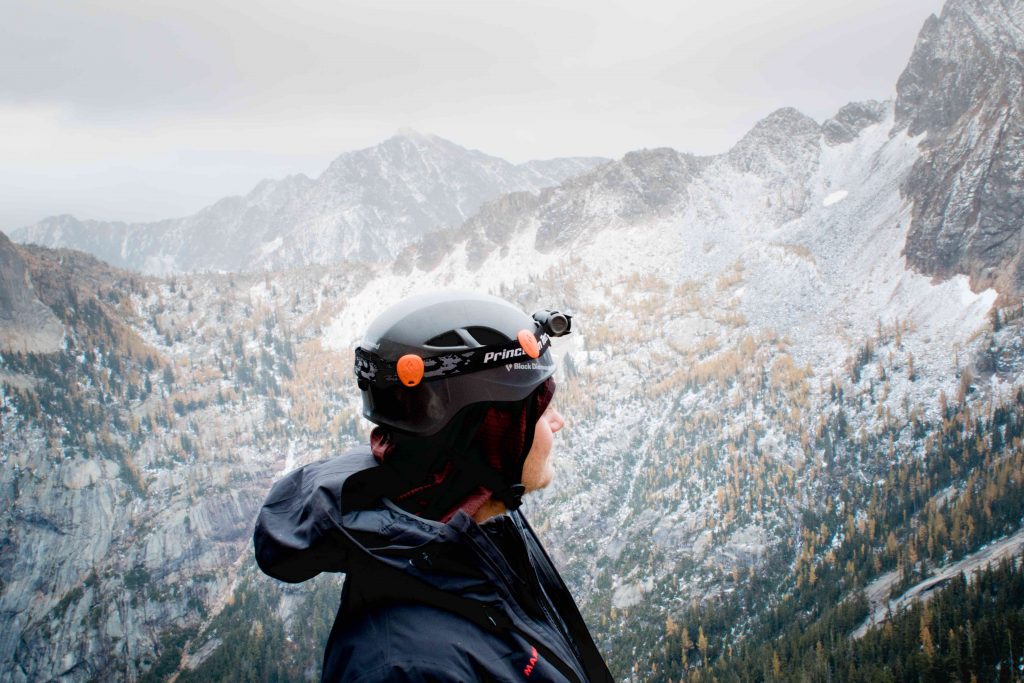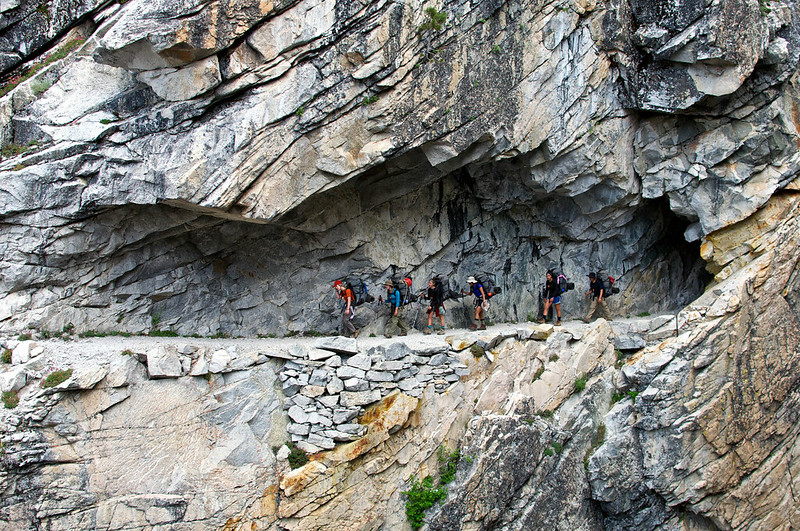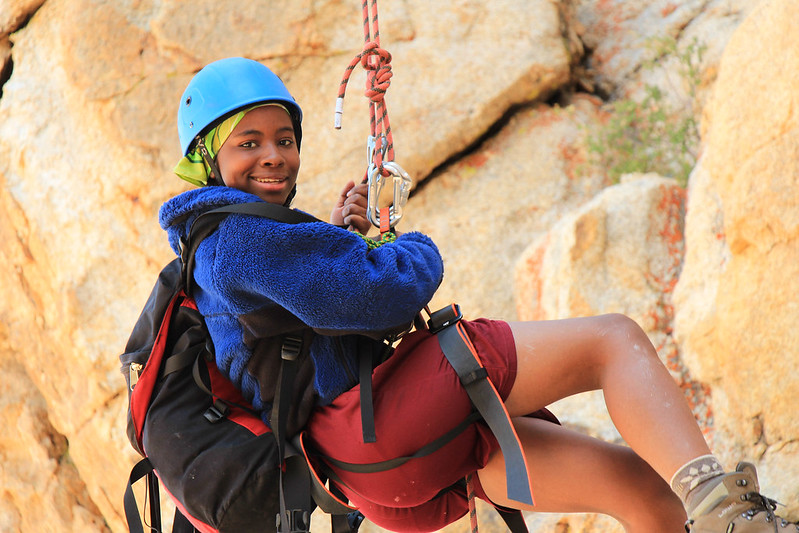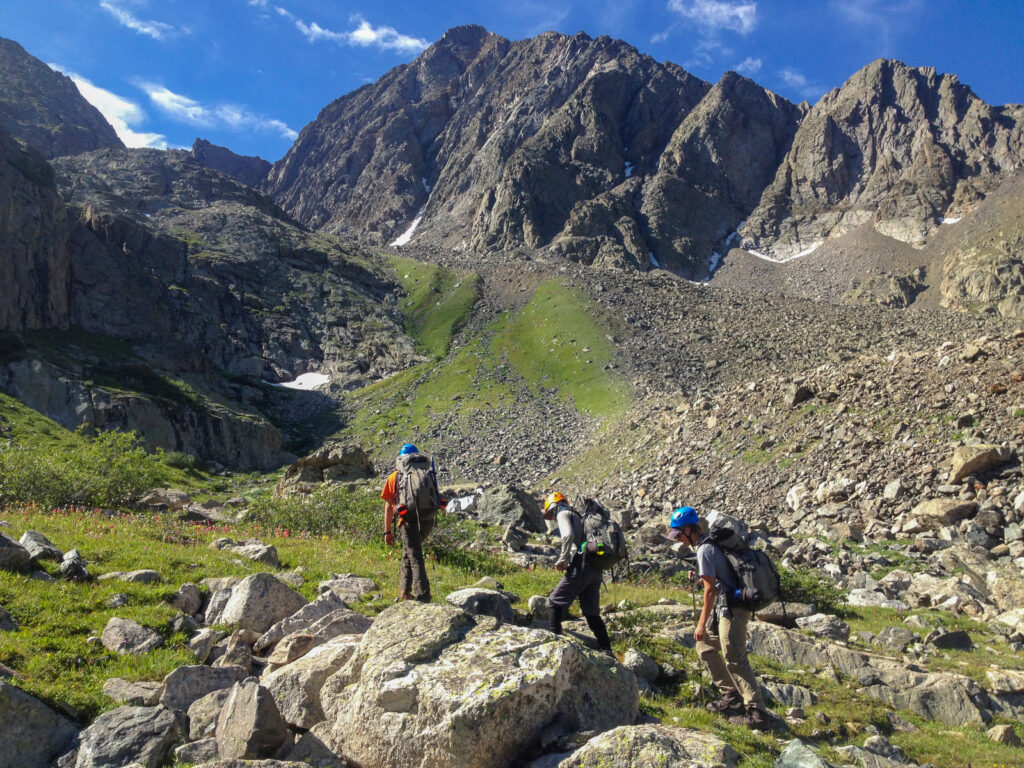A few minutes into your Outward Bound course, you may think, “I’m nervous. I’m excited. I hope people like me.”
A few days into the course, you may think, “I can’t do this. My body can’t do this. I want to quit.”
A few weeks into it, you may think, “I’m so proud of myself. I can’t believe how much I’ve transformed and how powerful I am. I’m not ready for this to end.”

Photo by Charis Nichols
In my experience, the first few days of an expedition are somewhat shocking. You’re thrown into a situation and are expected to level up every step of the way. My first time backpacking, I walked about 10 meters before the weight of my decision to live out of my backpack for a month hit me like a 45-pound cement block strapped to my shoulders. Despite how excited I was to start the journey, every choice—from choosing to show up at the trailhead that morning to the spoon I chose to pack—was clouded in doubt.
By day three, my feet were torn up, the skin rubbed raw. I had blisters from my toes to my heels. I wanted to quit due to the discomfort. I told myself that I wasn’t cut out for this. Quitting seemed like the only option to allow my body to recover. That night, my crewmate looked down at my feet, then up at me, and said simply, “You have to take care of that.” And I couldn’t believe I hadn’t come to that conclusion on my own! I had to do something to help myself.
The next morning, I put gauze and medical tape on my blisters, bandages on my toes, a sticky wrap around my heel, and I hiked. By lunch, I sweated off half of my foot care system, which meant half of it remained. I was so proud of my self-care! At lunch, I tried out new strategies in the places that had worn out. And the next day I did the same thing in the morning and reassessed at lunch. After one week on the trail, my feet didn’t bother me anymore. They had healed in a way that I thought would only be possible if I had given up.

Alpine Backpacking with Outward Bound
By the second week, everything hurt less. The discomfort somehow both slowly and suddenly subsided and I experienced pleasure. It showed up in the little things, like splashing cold water on my face, finding the perfect “sit rock,” where you can sit comfortably while keeping your pack on, and pause to enjoy the view. In fact, I thought I was getting pretty good at this whole backpacking thing.
By week three, my experience was almost constantly filled with pleasure. Everything about being on an expedition had become normal. My muscles were stronger so the weight of my pack made my back ache less. My self-care systems were better so the skin on my feet toughened. My mental attitude had shifted so I no longer focused on discomfort. Given enough time, I recognized how strong I am—body and mind.
A lengthy expedition, like my month-long backpacking adventure, allows more time for transformation and empowerment. Though I do believe any amount of time outdoors is valuable. I have the privilege—in terms of time, financial and physical ability, and safety—to live in the backcountry for long stretches of time, both for personal expeditions and for my job as an Outward Bound Instructor. This privilege is not accessible to everyone, and it’s my hope that the outdoors become a more equitable space because there’s magic in nature. You can’t quite articulate it; you can’t quite capture it; you have to experience it.

What do you learn while immersing yourself in the wild for 30+ days?
In addition to realizing your potential to constantly level up day after day, you learn nature nuggets—like how to differentiate an anhinga from a cormorant. You also learn technical skills, like when to use a C-stroke versus a J-stroke when canoeing. You learn your crew’s favorite spices to add to the big pot for dinner. Of course, you also learn how much you appreciate flushing toilets and sleeping on a mattress, while simultaneously impressing yourself with how little you truly need.
But it gets deeper than that. Interpersonal skills develop on an Outward Bound course because when tension arises between crewmates. It won’t go away until it’s addressed and managed. Conflict and stress management skills are invaluable learnings to later recall when you’re home and frustrations build in daily situations.
And just as crewmates have the opportunity to get under each others’ skin, they also have every opportunity to build one another up. When you experience a 30+ day course together, you go through the valleys and the peaks together. You learn that you’re capable of forming and maintaining strong connections with people.
Most importantly, you learn who you really are when everything else is stripped away. With the guidance of your Instructors and the help of your crew, you see your raw self. Superficial appearance means nothing when you haven’t seen a mirror in weeks. Your presence on Instagram isn’t adding to your livelihood when access to your phone is out of the question. Instead, you’re left with just you. You learn what triggers your stress and what soothes it. You learn that there’s “more in you than you know.”

The ultimate purpose of every Outward Bound course is for each student to go home with their head held high, feeling empowered and capable of anything the world throws at them next. The magic of a course comes into your life at exactly the right time, in exactly the right place. And while any length of a course is valuable, there’s something special about surviving and thriving in the outdoors for a month—or longer!
Explore upcoming 30+ day expeditions.
About the Author
Elizabeth Bowling is a field Instructor for the North Carolina Outward Bound School. Elizabeth has a degree in journalism and international studies from the University of Connecticut.
OTHER POSTS YOU MAY LIKE
Read More
Read More
Read More




